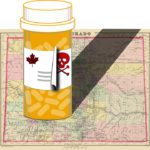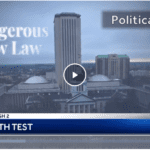Editorials
Partnership for Safe Medicines statement on weight loss drug ad blitz
Partnership for Safe Medicines released the following statement in response to the advertisement that lifestyle brand Hims & Hers released ahead of the Super Bowl to sell unregulated compounded weight loss drugs
[...]Colorado’s Canadian drug importation plan won’t be safe and also won’t save money
Colorado submitted its application to the FDA to import medicine from Canada on December 5. Like other Canadian importation plans, this one isn’t safe and it’s unlikely to save money.
[...]Former FDA Associate Commissioner Warns of the “Massive Safety Risks of Importation”
Source: Twitter This editorial by Peter J. Pitts was published in The Times Weekly on March 3, 2020. Mr. Pitts is president of the Center for Medicine in the Public Interest and a former FDA associate commissioner. Keep Canadian drugs out of U.S. medicine cabinets The Trump administration recently proposed two rules that would allow…
[...]News Outlet Truth Test Confirms Dangers of Florida’s Importation Legislation in PSM Ad
We recently ran an ad in Florida about the dangers of attempting to import medicine from Canada, and the risk of getting medicine from other countries like China where much of the world’s counterfeits come from. WESH 2 News serving Orlando put the ad through their exclusive Truth Test on April 25, 2019, and the claims in…
[...]Congress Passes Opioid Epidemic Legislative Package
The Partnership for Safe Medicines applauds the passage of the SUPPORT Act, an $8 billion package which will help develop non-addictive painkillers, improve prescription drug monitoring programs, establish comprehensive opioid recovery centers, and strengthen Customs and Border Protection’s ability to intercept fentanyl that is illegally shipped into the United States.
[...]Drug Importation is Fraught with Peril
As a licensed pharmacist, I’m all too familiar with patients’ difficulties getting medications they need and their physician has prescribed. As baby boomers age, pharmacists see more patients at our counters unable to obtain needed treatments for heart disease, high blood pressure, diabetes, and other chronic illnesses. This issue is now being acknowledged and a healthy debate has begun over possible solutions. But one idea policymakers shouldn’t pursue is opening up our country’s secure drug supply to medicines coming from outside our borders.
[...]Drug Importation Isn’t Safe and It Doesn’t Make Economic Sense, Says PSM President
In this May 31, 2018 editorial for The Daily Caller, pharmacoeconomic expert Dr. Marv Shepherd explains the concrete reasons why the importation of drugs from other countries as a means to lowering prices in the U.S. is both unsafe and economically unsound.
[...]STAT black market importation policy recommendation based in rhetoric, not facts
The most recent editorial in Stat advocating black market drug importation under the guise of “ordering prescription drugs abroad” overlooks many safety dangers. The most important oversight is in the characterization of the cost of medications. Over 80% of all medications dispensed in the U.S. are dispensed as generic, and generics as a whole are…
[...]How to Stay Safe as a Patient
Patients are growing concerned about reports of counterfeit drugs being provided by doctors. Patients can protect themselves by asking their physicians questions about the origins of medicines they receive in their doctor’s office.
Read more about what patients can do to stay safe.
[...]“Safe” Country Focus: United Kingdom
As my colleague Thomas Kubic recently noted, most supporters of drug importation have a faulty assumption that developed countries like Canada, Australia, Japan and the 27 members of the European Union (E.U.) are insulated from the global threat of counterfeit drugs. In the coming weeks, we will take a closer look at some of these so-called “safe” countries and illustrate why there is no such thing as a “safe” country when it comes to drug importation.
[...]





